Your business has a lot of tangible or hard assets. These fixed assets are lifetime properties that can pay you back in the long run. Fixed assets may include computing software, real estate, and machinery. Once damaged, these types of assets are hard to replace because they are expensive. So it is here that a fixed asset software solution can come in handy, helping you maintain and track fixed assets for the smooth running of your business. Additionally, it can help reduce administrative manpower and save you money.
Need for Fixed Asset Software for Business
There are a number of reasons why you should choose a software solution to manage your business assets. With such a solution handy, businesses can cut down on the need for manpower to manage assets. The software can help boost efficiency and visibility and reduce spending.
Without a fixed asset management software solution, businesses run the risk of experiencing common pitfalls that can be avoided. Businesses with outdated infrastructure can leverage the tool to assess the efficiency and life of an asset. Outdated infrastructure is vulnerable to security threats and code violations. With a fixed asset software tool, you can keep a track of asset-related performance and get timely reports on security and risk management.
- Simplify processes
Manual data entry is prone to errors. A fixed asset software solution can automate workflow processes. Automation helps increase visibility into different processes, such as tracking depreciation, transferring assets, and inventory management. Since the software can integrate directly with in-house accounting modules, it allows for seamless transfer of data between applications.
- Depreciation accuracy
With fixed asset accounting software, you can efficiently track the depreciation of assets. There is a high risk of human error and inefficient recording of data. Any change in law will not have any impact on the best-fixed asset software solution, as it is automatically updated with the latest technology trends. Since it is automatically updated, there is no human intervention, eliminating the risk of human error.
- Central Asset Register
Businesses maintain multiple lists, which is an inefficient way to monitor and manage assets. Doing it manually makes it difficult to verify lists or registers. Additionally, there is a high risk of duplication.
Leverage the fixed asset software as a central asset register that acts like a database of all assets in your organization and helps avoid duplication of assets. The solution tracks and records all events in the lifecycle of every single asset. Since they track assets throughout their life cycle, there is a guarantee of the accuracy of data and calculations. Asset tracking is the process of monitoring of asset movements all through their lifecycle. This helps ensure that the asset register is up to date all the time.
With such a tool, maintaining a central database effectively is easy. It provides the organization with an accurate picture of the company assets.
- Transparency of data
Leverage the fixed asset system as a secure database to store asset-related information at one location. A web-based solution enables enterprises to track assets throughout their lifecycle, and access data in real-time anywhere. Additionally, the software covers the asset’s lifecycle to date, including the calculation of depreciation. This gives a clear picture of accurate audit and financial information related to fixed assets, including tangible and intangible, on the balance sheet.
- Audit and certification
With a specialist software solution in place, finance teams can meet audit regulations. In the absence of such a software tool, problems with fixed asset management are likely to be flagged up during audits. Using specialist software can help finance teams to meet and surpass audit regulations.
- Insurance
Your business can save on unnecessary payments of premiums on assets no longer in use. In the absence of an automated solution that tracks the lifecycle of an asset, there is no accurate data on the working, functioning, or condition of an asset. This means enterprises that do not use a fixed asset management software tool may end up paying insurance premiums on useless assets.
By maintaining an accurate asset register, such insurance premiums may be reduced by producing proof of all the assets you presently own.
- Returning asset
A fixed asset accounting software solution keeps track of roaming assets, which gives a clear picture of moving assets that were loaned out. An updated asset register comes in handy to know when and to whom the asset was issued and returned.
Additionally, a fixed asset software solution helps keep an inventory of non-capitalized assets, maximizing effective control and usage.
With a fixed asset management solution, your business can benefit in more ways than one. It saves you from insuring assets you no longer own. In the absence of such software, you are unaware of your assets’ condition. Inaccuracy of data costs you both time and money.
If you are wondering which fixed asset accounting software to choose, get in touch with the ITQlick team of software experts. We can help you with the software selection process. Looking for the best solution is easy for us. Allow us to help you improve, succeed, and grow in your business.
